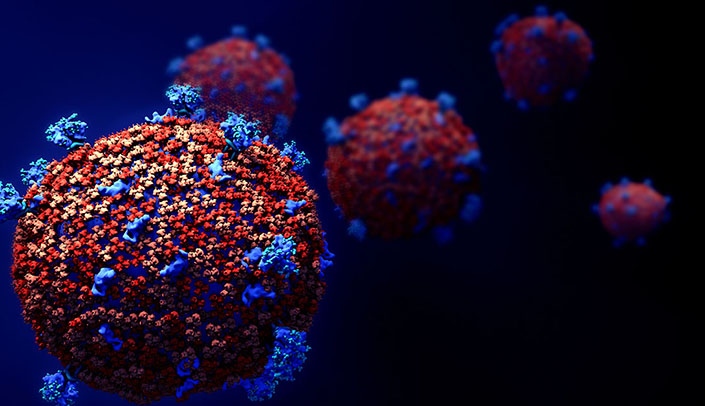While walking med center halls, Vimla Band, PhD, has met Indian students, faculty and post-docs who have shared stories of loved ones in India “with tears in their eyes.”
Dr. Band, who grew up in New Delhi, has her own stories of losing loved ones to COVID-19.
In the past week, India’s COVID-19 cases have skyrocketed, taxing the country’s health system with dire shortages of beds and lifesaving supplies. On Tuesday, the UNMC and Nebraska Medicine communities came together online to offer support and compassion to their Indian colleagues. Nearly 150 people attended.
“We have known for the past 15 months that this is a global pandemic but the recent headlines, video and commentary from India and other parts of the world are truly heartbreaking,” said UNMC Chancellor Jeffrey P. Gold, MD.
“The crisis in India is beyond words,” said Dr. Band, chair of the UNMC Department of Genetics, Cell Biology & Anatomy.
The images, too, are in contrast to the optimism felt in the United States as Americans are being vaccinated. For Indian Americans, these stark differences are frustrating, heart-wrenching and guilt-inducing. Said Nebraska Medicine CEO Jim Linder, MD: “Many of you are suffering along with them because of the uncertainty this creates. You have my deepest sympathies and compassion.”
Campus leaders Tuesday offered condolences and pledged their support to help the Indian community however they can.
“People who are hurting often don’t reach out for help,” said David Cates, PhD, director of Behavioral Health, Nebraska Medicine. “We all need to be proactive in reaching out to our colleagues who we know are hurting.”
That’s especially important because of the cultural reluctance to access psychological counseling, said Chandra Are, MD, associate dean for graduate medical education, and Hamid Band, MD, PhD, professor in the Eppley Institute. Simple acts, including connecting with colleagues, asking ‘how are things going?’ and showing compassion, means a lot during a crisis, they said.
Beyond the emotional toll, they said, some Indian Americans are going through financial stress because they support families in their native country. Learn more about the University of Nebraska Emergency Assistance Fund, which helps students, faculty and staff who are struggling with challenging situations, and the Colleague Hardship Healing Program at Nebraska Medicine, which provides for paid time off and financial assistance.
Learn more about the global crisis, as well as med center wellness and counseling resources.
